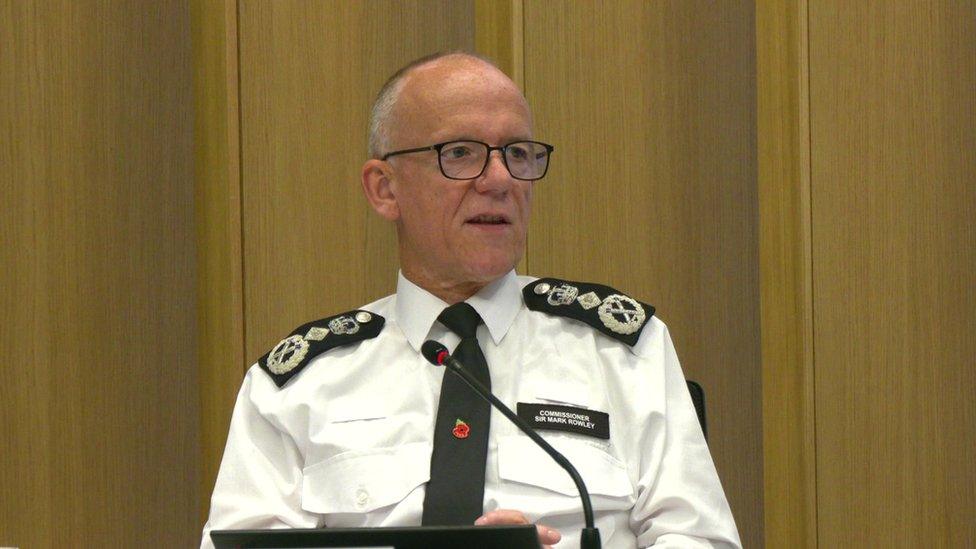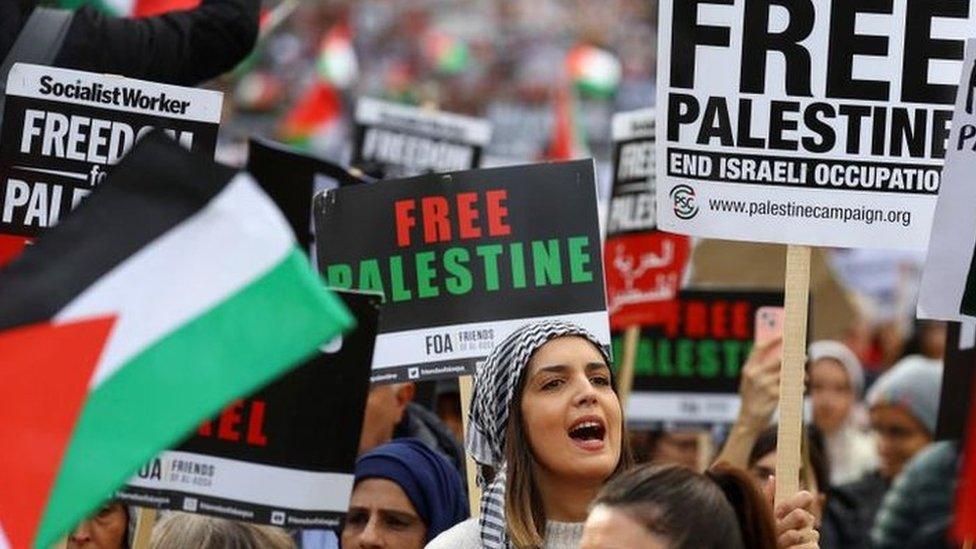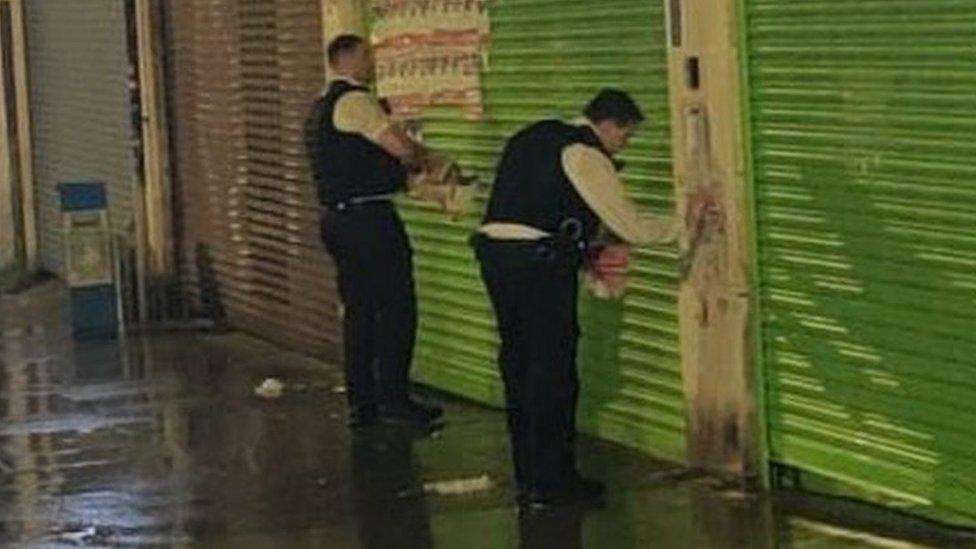Met Police: Thousands of officers redeployed for protests
- Published

Sir Mark Rowley answered questions about the impact of the Israel-Gaza protests as well as hate crimes in London
Around 3,500 community police officers have been redeployed to central London protests in the past three weeks, the Met commissioner has said.
Sir Mark Rowley told the London Assembly he was "deeply concerned" about the impact on community policing.
He added that if the protests were to continue, the Met would have to rethink its resources going forward.
The commissioner also believed the force had been balanced in its approach to investigating hate crime.
Conservative member Susan Hall asked the commissioner about the impact of recent protests.
Israel has been bombarding Gaza with intense and prolonged air strikes following the 7 October attacks by Hamas on southern Israel, in which 1,400 were killed and more than 200 were taken hostage.
The Hamas-run health ministry says Israeli air strikes on Gaza have killed more than 9,000 people as of 2 November.
On the weekend of 14 October, Sir Mark said 1,000 community officers were redeployed as the first two Israel-Gaza protests took place in central London.
The following weekend (21 October) saw an increase, with 1,500 redeployed and last weekend (28 October) 2,000 were redeployed.
He said: "I am deeply concerned about the effect this has on local policing and the balance of that effort across London.
"Clearly we can't let these protests get out of hand but it is creating a significant stretch."
He explained that he anticipated that if these protests continued as a "sustained pattern" it would mean the force would have to change their approach to resources to make it sustainable.
It comes as further pro-Palestinian protests are planned for Remembrance weekend, including a "significant demonstration" on 11 November in central London.
The Met said in a statement: "Officers will be deployed across London on 11 and 12 November as part of a significant policing and security operation."
Sir Mark said the National and International Capital City (NICC) grant from the Home Office was supposed to fund the specific challenges of policing the capital but it was "well over £150m underfunded".
"It's that sort of shortage in capacity which plays into that stretch and means that we're hitting local policing harder than I would like while we deal with protests," he added.
A Home Office spokesperson said police would receive up to £16.9bn in funding this year, a boost of £1.1bn on last year, to ensure forces in England and Wales "have the resources they need to protect the public".
"The Home Secretary has been clear that she wants forces to take a zero tolerance approach to crime and get back to basics," the spokesperson added.
"That's why she has asked all chief officers to ensure that any protests which could exacerbate community tensions have a strong police presence so perpetrators are appropriately dealt with and communities are protected."
As to whether policing had been equally proportionate in investigating antisemitic and anti-Muslim-related hate crimes, Sir Mark said that he believed it was well balanced.
There have been around 60 arrests at the protests and 100 elsewhere related to the crimes.
He explained: "There's a lot of tension between communities and we can see the risk of terrorists and extremists in the UK getting energised, which challenges our counter terrorism team."
Hate crimes against the Jewish community since the outbreak of the Israel-Gaza war were up 13 or 14 times, and up three or four times for hate crimes against the Muslim community, compared to the same time last year, according to the commissioner.
On Tuesday, there was criticism to the Met for removing posters of the 230 hostages abducted by Hamas calling for their release, placed on a shop front in Edgware.
Sir Mark said that placing posters was "perfectly lawful".
However, in the Edgware case they were told that they were placed on the shutters of a shop where a pro-Palestinian supporter worked which were private premises.
The previous week, pro-Palestinian flags placed on a Jewish war memorial were removed by an officer, he added.
"We're taking pragmatic judgements which are completely symmetrical to deflate tension."

Listen to the best of BBC Radio London on Sounds and follow BBC London on Facebook, external, X, external and Instagram, external. Send your story ideas to hello.bbclondon@bbc.co.uk, external
Related topics
- Published22 October 2023

- Published31 October 2023
